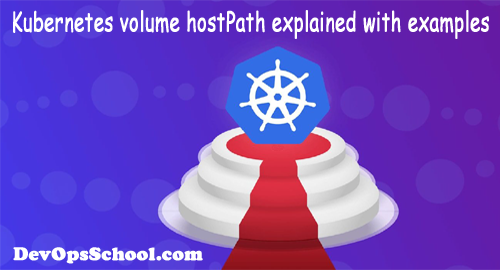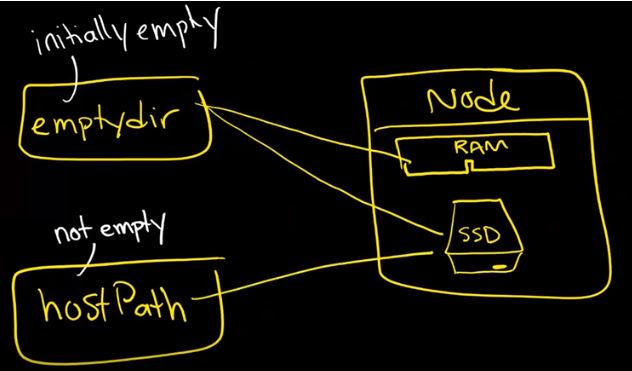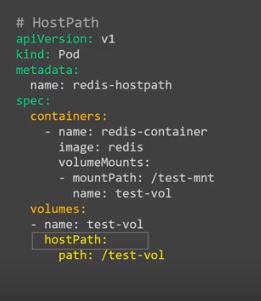

- The hostPath volume mounts a resource from the host node filesystem. the resources could be directory, file socket, character, or block device. These resources mu
- A hostPath volume mounts a file or directory from the host node’s filesystem into your pod.
- A hostPath PersistentVolume must be used only in a single-node cluster. Kubernetes does not support hostPath on a multi-node cluster currently.
- The directories created on the underlying hosts are only writable by root. You either need to run your process as root in a privileged container or modify the file permissions on the host to be able to write to a hostPath volume
Uses for a hostPath are:
- This is not something that most Pods will need, but it offers a powerful escape hatch for some applications.
- Deploying some Node Specific files through pod
- Running a container that needs access to Docker internals; use a hostPath of /var/lib/docker
- Allowing a Pod to specify whether a given hostPath should exist prior to the Pod running, whether it should be created, and what it should exist as
Example
apiVersion: v1
kind: Pod
metadata:
name: test-pd
spec:
containers:
- image: k8s.gcr.io/test-webserver
name: test-container
volumeMounts:
- mountPath: /test-pd
name: test-volume
volumes:
- name: test-volume
hostPath:
# directory location on host
path: /data
# this field is optional
type: DirectoryOrCreate

I’m a DevOps/SRE/DevSecOps/Cloud Expert passionate about sharing knowledge and experiences. I am working at Cotocus. I blog tech insights at DevOps School, travel stories at Holiday Landmark, stock market tips at Stocks Mantra, health and fitness guidance at My Medic Plus, product reviews at I reviewed , and SEO strategies at Wizbrand.
Please find my social handles as below;
Rajesh Kumar Personal Website
Rajesh Kumar at YOUTUBE
Rajesh Kumar at INSTAGRAM
Rajesh Kumar at X
Rajesh Kumar at FACEBOOK
Rajesh Kumar at LINKEDIN
Rajesh Kumar at PINTEREST
Rajesh Kumar at QUORA
Rajesh Kumar at WIZBRAND

 Starting: 1st of Every Month
Starting: 1st of Every Month  +91 8409492687
+91 8409492687  Contact@DevOpsSchool.com
Contact@DevOpsSchool.com
